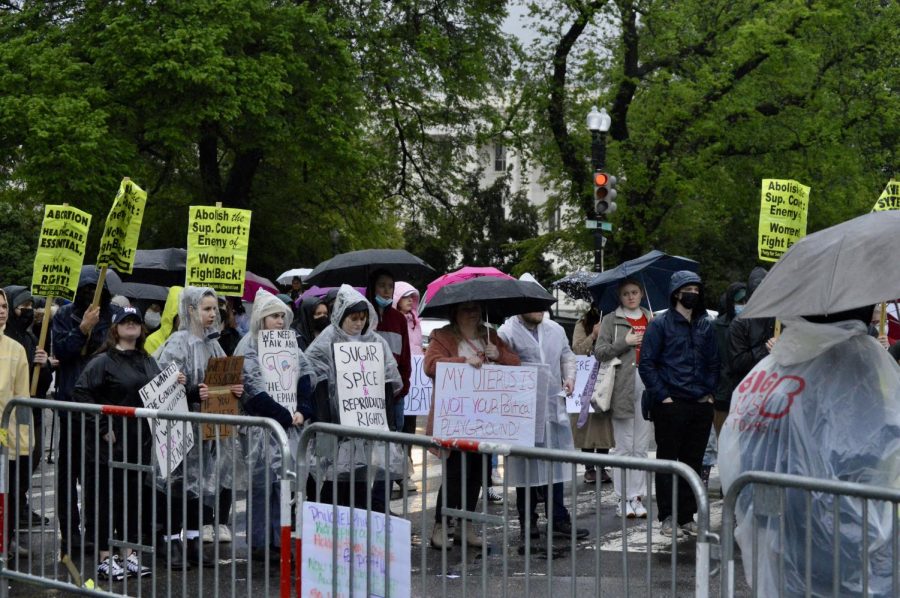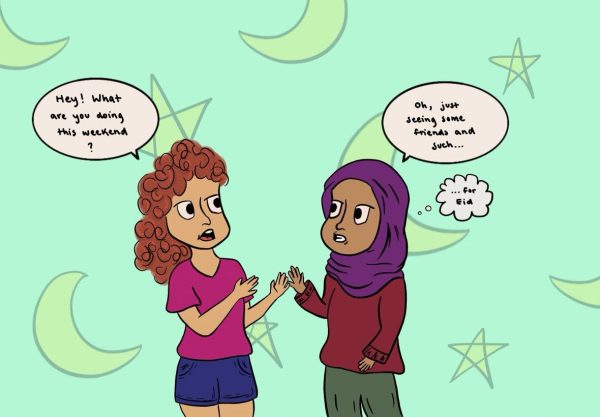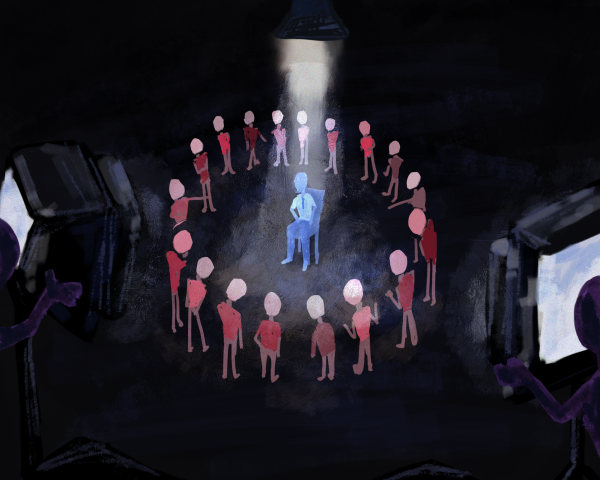Roe is gone. How can we help future generations?
As the Supreme Court threatens to turn a 50-year-old precedent into a distant memory, how do we teach future generations about decades of progress towards protecting reproductive rights in this nation?
Content warning: this story contains language that pertains to sexual assault.
On Friday, the Supreme Court overturned Roe v. Wade, paving the way for states to restrict or eliminate the reproductive rights of Americans with uteruses. Beyond those directly affected by the decision, the court’s reversal of Roe was also significant for the millions of Americans who rely on protections under other landmark cases that the ruling now jeopardizes. As the Supreme Court threatens to turn a 50-year-old precedent into a distant memory, how do we teach future generations about decades of progress towards protecting reproductive rights in this nation?
As a child, I learned that Americans had the right to determine the course of their pregnancy because a 1973 court case safeguarded reproductive autonomy for people with uteruses. I understood that people challenged these ideas, but Roe was the law of the land: unbreakable and sacred.
In the past two years alone, I’ve watched rioters attack the Capitol building, government officials and police officers ignore civil rights and lawmakers fail to act in the wake of countless school shootings; it’s becoming increasingly difficult to instill hope in the next generation of leaders. How will we explain that nine people in long ponchos were able to control the outcomes of millions of pregnancies?
The current generation of teenagers is mature enough to grasp the devastating implications of Friday’s news. We’re terrified for our future as we scroll on our phones and watch our elders determine our reproductive futures. After all, we are the last generation to learn about the landmark ruling without having to learn about its landmark demise.
In a post-Roe America, children will learn in school that a single court ruling reversed decades of progress towards ensuring women’s safety. For one of the only times in the Supreme Court’s history, the justices went back and took rights away instead of expanding — or protecting — them.
To help children grasp this complicated regression, it’s our responsibility to normalize conversations about abortion. As the last generation to enter this world with federally-protected abortion rights, we need to educate future generations on the death rates of women who are forced to deliver babies that their bodies can not carry. We need to tell the stories of mothers in poverty who can’t support the children that they didn’t intend to have. We need to explain the disparities in access to contraceptives that women of color face. We need to amplify the voices of rape victims who will carry the child of the person who took advantage of their bodies. But most of all, we must educate future generations about how the reversal of Roe v. Wade doesn’t criminalize all abortions; it only criminalizes safe ones.
The importance of safe abortions may seem obvious, but it’s more important than ever to explain to young people why abortion is a form of health care. Since the inability to terminate a pregnancy can result in an ill or deceased child or mother, mortality rates are lower in jurisdictions where abortion is legal.
In a country that lacks universal child care, many future parents will also be forced to deliver newborns with the knowledge that their young child won’t be adequately cared for, and that the number of children in foster homes will only increase.
Without the right to choose, people with uteruses will feel lost. Future generations will come to us with questions about abortion, and it’s our responsibility to ensure that we’re ready to be open and judgment-free, because the June 24 ruling can’t simply be another chapter in a history book; it’s a lesson to the next generation that nothing is set in stone. To prepare them for an uncertain future, it’s up to us to encourage them to be activists, help them vote in local elections and equip them with the tools to continue the fight for reproductive rights.
Why did you join The B&W?
For the community!
If you were a candle, what scent would you be?
Grapefruit
Why did you join the Black and White?
My sister did Black and White and said it was an amazing experience. In addition, I love photography and would love to share some of my stories with the school.
If you could see one movie for the first time again, what would it be?
Home Alone














Richard • Aug 10, 2022 at 2:59 am
Everyone has to recognize that this is a problem which will never be resolved to the satisfaction of everyone, so everyone is going to have to give in a little. In the same way that a 12-y.o. girl victimized by rape should be able to get an abortion legally, I do not favor a woman 39 weeks pregnant having the right to an abortion no questions asked. You may say that a woman has a right to decide what to do with her body, but the baby she is carrying also has rights. Maybe the compromise is easy abortions up to 20 weeks but only court-ordered ones after that. Fortunately, valid data shows that abortions now performed after 20 weeks are extremely rare.